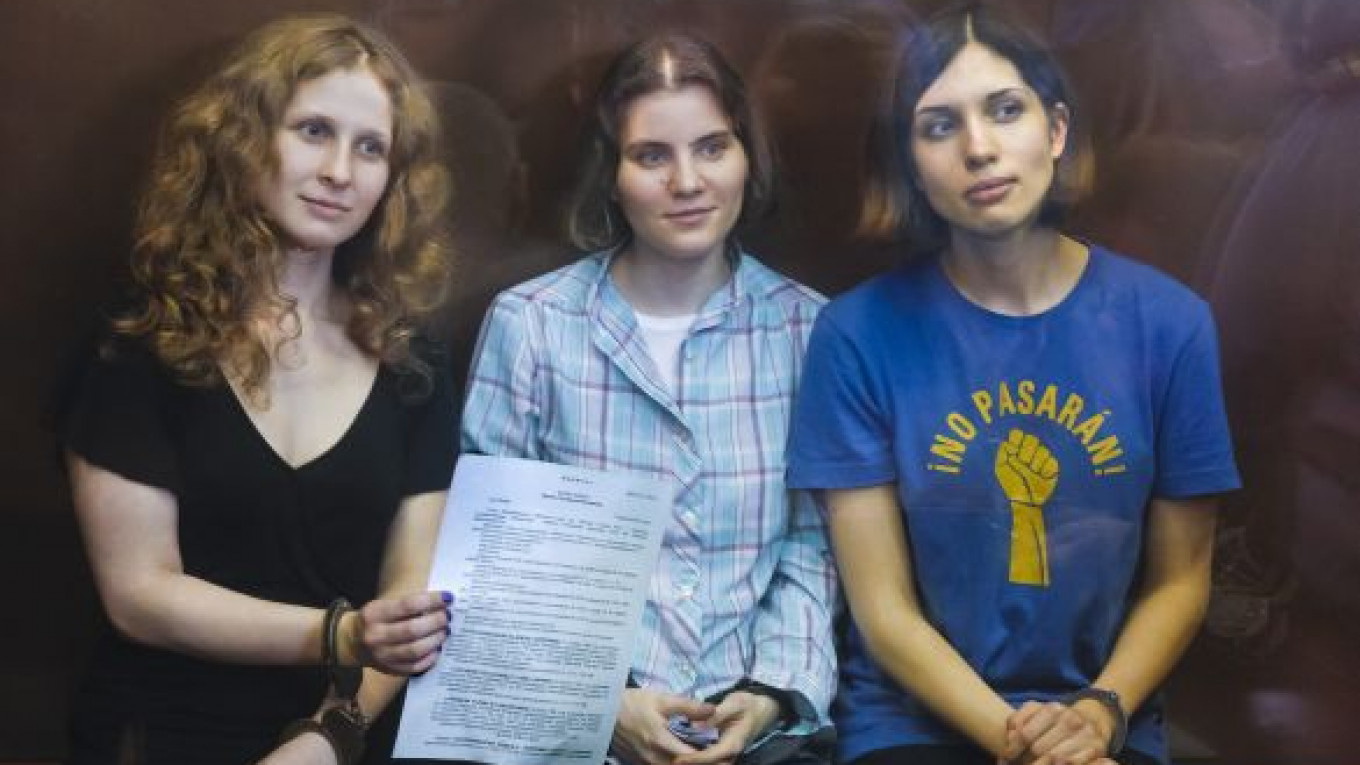Pussy Riot rocker Yekaterina Samutsevich, whose conviction was recently overturned, expressed approval that the 2012 Sakharov Prize for Freedom of Thought would go to two jailed Iranians: human rights lawyer Nasrin Sotoudeh and filmmaker Jafar Panahi.
Among the nominees for the award, named after Soviet dissident Andrei Sakharov, was punk band Pussy Riot and members Nadezhda Tolokonnikova, Maria Alyokhina and Samutsevich.
The trio was nominated for their unsanctioned protest in a Moscow cathedral in which they denounced President Vladimir Putin, a performance for which they were jailed and convicted of hooliganism inspired by religious hatred. In August, a Moscow court sentenced them to two years in prison, but Samutsevich was later released on appeal.
Samutsevich told The Associated Press that she was pleased that Panahi won the prize.
"It's very important for us that it went to someone who is in jail for their feminist views," she said. "That's essentially the same as what happened to us."
European Parliament members nominated the Pussy Riot women for drawing unprecedented attention to what they called the "absence of rule of law in Russia."
"The acts of protest and arrest of these three young women … and their sentencing to two years in a labor camp, have done far more to focus the world's attention on the unscrupulous restriction of civil rights and the absence of the rule of law in Russia than did the earlier murders of journalists or the new repressive laws," their nomination said.
The prize winners, Sotoudeh and Panahi, have both been imprisoned by Iranian authorities in connection with their support of anti-government protests in Iran in 2009.
Other nominees for this year's award included jailed Belarussian civil activist Ales Belyatsky and three Rwandan activists.
The Sakharov prize was founded in 1988 and is given annually to one or more human rights campaigners around the world. It includes an award of 50,000 euros, according to its website.
Related articles:
A Message from The Moscow Times:
Dear readers,
We are facing unprecedented challenges. Russia's Prosecutor General's Office has designated The Moscow Times as an "undesirable" organization, criminalizing our work and putting our staff at risk of prosecution. This follows our earlier unjust labeling as a "foreign agent."
These actions are direct attempts to silence independent journalism in Russia. The authorities claim our work "discredits the decisions of the Russian leadership." We see things differently: we strive to provide accurate, unbiased reporting on Russia.
We, the journalists of The Moscow Times, refuse to be silenced. But to continue our work, we need your help.
Your support, no matter how small, makes a world of difference. If you can, please support us monthly starting from just $2. It's quick to set up, and every contribution makes a significant impact.
By supporting The Moscow Times, you're defending open, independent journalism in the face of repression. Thank you for standing with us.
Remind me later.






